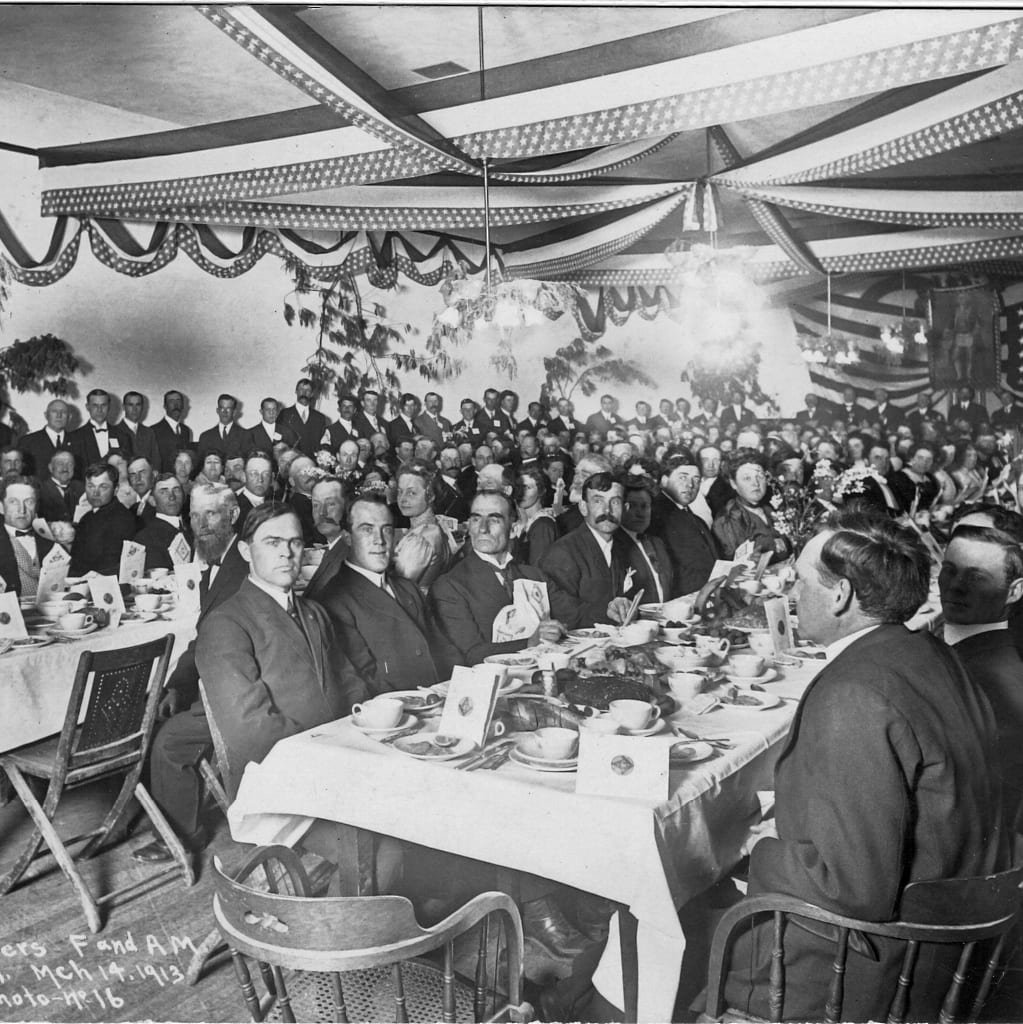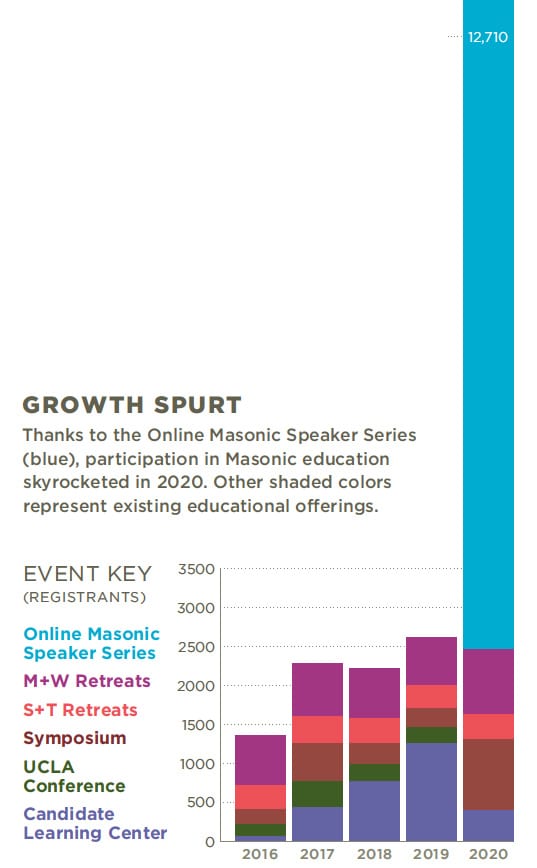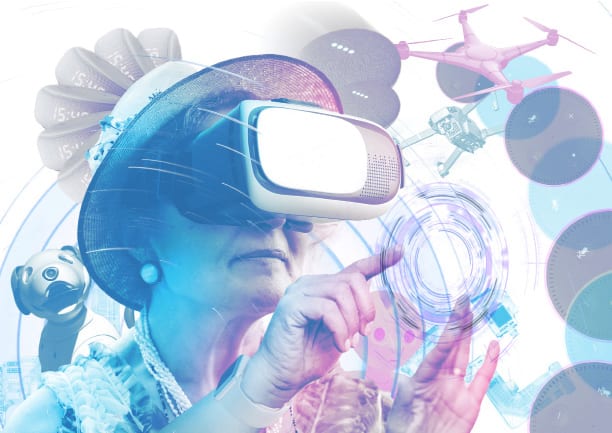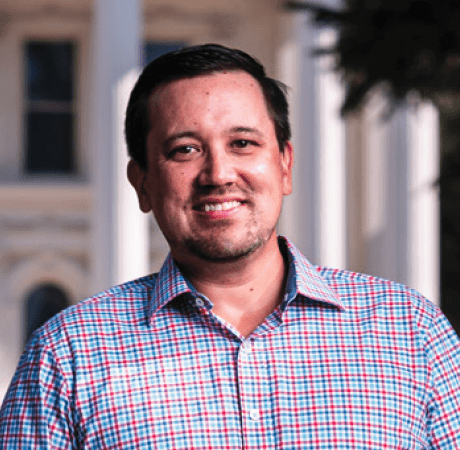
Lodge Profile: The History Makers
A historic lodge celebrates 150 years on the Central Coast.

By Graham Hacia
Adam Hanin broke into a smile as he violated the first rule of public speaking: Lay off the groaners. “Marty,” he said into his laptop, “I’m thinking you need to turn up the AC, because you’re on fire!” Then Hanin—acting on this night as emcee—read the next question for his lodge’s virtual trivia night, pausing just long enough to cue the Jeopardy-esque music.
It was a brief moment of levity for the members of Acalanes Fellowship Lodge No. 480 during an otherwise oppressively disheartening year. It was also a scene that’s become familiar to us all since March: people gathering online to stay in touch and, hopefully, to manifest some semblance of human connection. Groaners included.
But as Zoom fatigue settles in after months of screen-to-screen communication, and Masons begin dreaming of a return to in-person meetings, it’s important to consider how transformational these online tools have been for the fraternity—and how they’re likely to reshape lodge life even after the pandemic has passed. No, meetings won’t be held via screens and speakers forever. But remote meetups are here to stay, in one form or another. How lodges learn to absorb them into their day-to-day operations will have important consequences for the future of Freemasonry.
Before you dismiss that as technoid poppycock, consider how going online has helped close equity gaps within lodges—namely, that physically getting to lodge can be harder for some than for others. That may be because a member lives far away, or age or health prevents them from leaving home.

Perhaps they moved out of the area, or have a young family and can’t spare four hours on a school night. “We have more than 300 members, but only 125 or 150 live within an hour of the lodge,” says Doug Ismail, master of California No. 1.
Virtual meetings have helped address that problem, allowing more members than ever to participate, which in turn livens up meetings that can easily grow stale. “We’ve had brothers from Saudi Arabia, England, and Belgium on at the same time,” Ismail marvels. At Hanin’s Acalanes Fellowship lodge, members used to arrange carpools for elderly members who could no longer drive to attend stated meetings. Now attendance is only a few clicks away.
Going virtual also levels the playing field for remote lodges, many of which struggle to bring a quorum of members together. And online, these lodges have access to the same resources as their big-city brethren, including guest speakers.
Meeting online has also put the fraternity in a better position to respond to real-world issues. In May, more than 1,000 Masons signed on to hear Dr. Oscar Alleyne, an infectious disease expert and New York Mason, discuss the nation’s response to the coronavirus. And over the summer, the Masonic Family Civility Project led discussions on racial injustice in the wake of Black Lives Matter demonstrations. In cases like those, diverse groups of Masons were able to come together online.
Then there’s the new Online Masonic Speaker Series, rolled out over the summer, which attracted more than 12,000 registrants, with another 3,000 watching lectures after the fact.
Of course, there are things that can’t be replaced by a smartphone or a laptop. “I hug every brother and shake their hand at every stated meeting,” Ismail says, referring to his lodge’s Circle of Brotherhood ritual. “I don’t think anything can replace that.”
There’s also the absence of Masonic halls and lodge rooms. “For new guys coming in, that physical space is important to the solemnity of our ceremonies,” he says. “The sense of tradition and the weightiness of the fraternity is impossible to replicate.”
These are valid concerns, and digital connection should be thought of as a “plus-and” rather than an “either/ or” issue, Ismail says. While virtual meetings will never subsume physical meetings, they can augment how Masons conduct business. Says Hanin, “We’re actually going to come out of this season with more-engaged members than when we went into it. That, I think, is the point of what we’re trying to accomplish here—to stay relevant and build our membership.”
Hanin, for one, plans on holding monthly calls even after the world returns to normal. “We had a brother in England who joined us at two in the morning just to say hi,” he says. “I’m not going to stop that.”
PHOTO CREDIT:
Shutterstock

A historic lodge celebrates 150 years on the Central Coast.

Robotic pets. Smart toilets. VR goggles. The Masonic Homes have become a nerve center of hi-tech gadgetry.

A Sacramento insider on why when it comes to Masonic philanthropy, all politics is local.